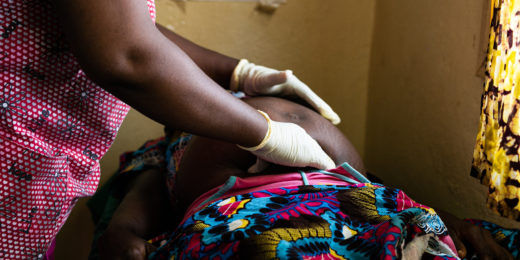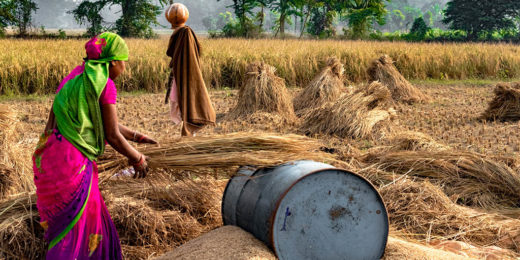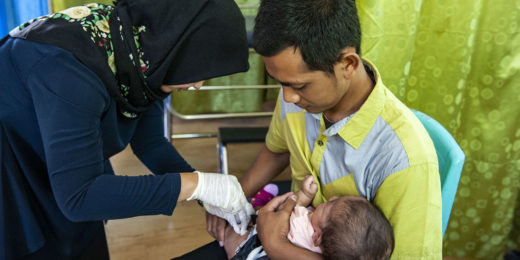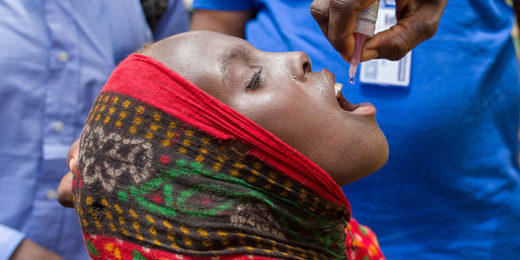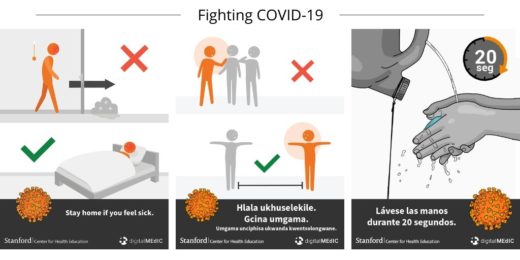Health educator’s widely praised and popular videos draw on humor and creativity to spread a COVID-prevention message to a global audience.
Category: Global Health
Stanford Medicine team aids Lakota Nation in fighting COVID-19
When a physician requested pandemic assistance for the Oglala Lakota Nation, a Stanford Medicine team offered guidance in crafting a COVID-19 response.
COVID provides opportunity to rethink inequitable roles in global health partnerships
The pandemic has provided an opportunity to examine relationships in academic global health, notes Michele Barry, Stanford Medicine's global health director.
Predicting premature birth in low-resource settings
A blood test that predicts if a baby will be born prematurely works well for pregnant women in developing countries, a Stanford-led study found.
Lessons in inequity from a global health study
A public health program in India improved maternal and child health initially, but was at risk of leaving behind disadvantaged participants when it expanded.
Bat-borne Nipah virus could help explain COVID-19
Understanding similarities between the Nipah virus and COVID-19 could provide clues for avoiding future novel virus outbreaks.
Affordable health care can reduce incentive for deforestation, study finds
A Stanford-led study found that deforestation declined in a Indonesian community after a health clinic provided an incentive to avoid illegal logging.
The power of animation: Two videos offer messages of hope during the pandemic
Two animated videos from Stanford Medicine aim to help people around the world who are struggling to cope during the COVID-19 pandemic.
Reducing surgical site infections in low-resource settings
During a stint in Ethiopia, Stanford surgical resident Jared Forrester worked on a surgical infection prevention plan for low- and middle-income countries.
How polio eradication in Africa can inform the global COVID-19 response
As the global health community celebrates the eradication of wild poliovirus in Africa, there are lessons that can apply to the COVID-19 pandemic.
Stanford students design a device to detect early-stage river blindness
A team of Stanford undergraduates designed a device that uses blue-light imaging technology to diagnose a parasitic disease called river blindness.
Many early COVID-19 studies have low-quality design, risk low-value evidence, research finds
Many early clinical studies of COVID-19 fail to meet quality standards, raising concerns that the data could be of little meaningful use, research finds.
Why air pollution is linked to severe cases of COVID-19
A Stanford researcher discusses how toxic pollutants can make people more susceptible to COVID-19 and why people of color are particularly vulnerable.
Dust pollution linked to infant mortality in Sub-Saharan Africa
Dust pollution in the air contributes to infant mortality in Sub-Saharan Africa, a Stanford-led study found. Watering the desert may lessen the harm.
Keeping under-resourced communities informed about COVID-19
The Stanford Center for Health Education is creating digital COVID-19 informational materials for under-resourced communities around the world.
Women leaders shine during COVID-19 pandemic
A webinar examined attributes and qualities that led to the successes of women leaders responding to the COVID-19 pandemic.





